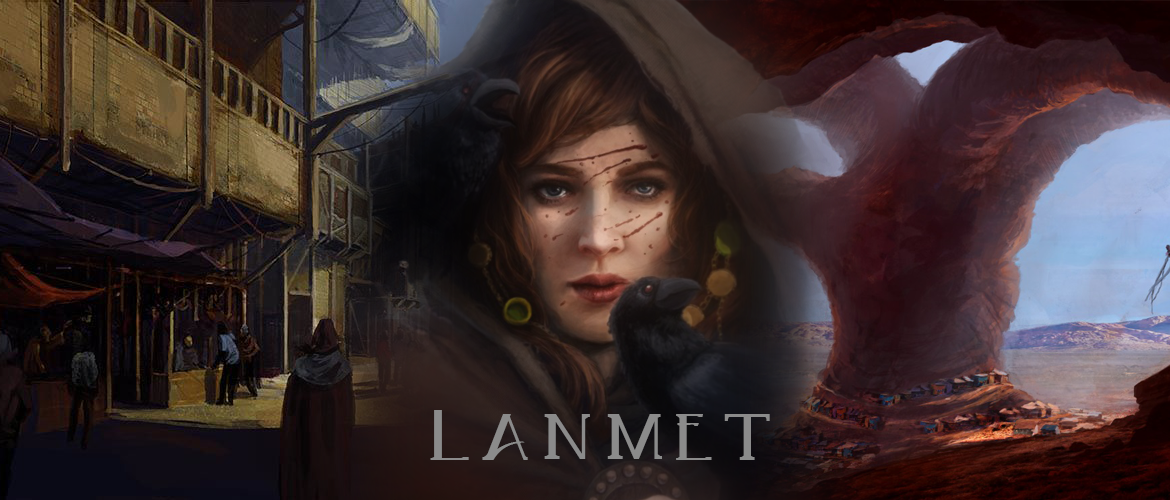People of Dost
The people of Dost are those who have fled Bast and now live freely in the deserts behind a mountain range. Most of them are found in Dost or Al Renya.
Examples:
Ander the Builder, Marq the Strong, Amara the Quick, Rive the Reader, Twiceborn the Free.
Stereotypes
They are often seen as unintelligent and servitile, many believe it isn't worth freeing them since they seem to like being slaves.Naming
There are two thoughts in naming of the People of Dost, they either will keep their names from when they were a Bastites or take names reminiscent of ancient french names, though often shortened and rarely over a few syllables. Their last names are usually aspirational names, things they feel they are good at doing or want to be like. Connecting the first and the aspiration name is often "the".Examples:
Ander the Builder, Marq the Strong, Amara the Quick, Rive the Reader, Twiceborn the Free.
Culture
Major language groups and dialects
Sign language is the main form of communication in Dost and the practice has transferred to the slaves of Bast. It allows a stealthy way to communicate to slaves which are hardly allowed to talk. It is banned by Bast slavers but the practice continues.
Culture and cultural heritage
Simple sports that don't require much equipment like running, wrestling and boxing are common, tobogganing is growing more popular too. Due to the surroundings, stone carving, both of small objects and as wall murals has grown popular. Stories are often told in carvings and depict themes of freedom and justice.
Shared customary codes and values
Laws are based on the amount of negative impact an action has, doing a crime such as stealing food is almost encouraged, while things like murder are strictly frowned upon. Right and wrong is based on a similar system, usually things are ignored if the impact is small.
Common Etiquette rules
the young make up a large amount of the population and have a lot of say, the elderly have a lot of respect though, from surviving in the harsh conditions. Racial tensions with the The First People is common, and sometimes with other cultures that aren't seen as "helping". The harsh conditions make relationships tense.
Common Dress code
Dye their robes yellow to seperate themselves from the slaves. Have a plant that makes yellow dye that grows in the area, has become a main trade good. Undyed parts will normally be bleached white in the sun.
Art & Architecture
Caves are the main way that the people of Dost survive. They provide shelter from the elements but also narrow choke points and places to lay ambushes. Stolen mining tools are used to expand caving complexes and deep within the mountains safe and comfortable homes are built. Other buildings will often copy the Gypts styles.
Common Customs, traditions and rituals
Filling meals are the focus of cooking in Dost. Couscous, barley and chickpeas make up the base with traded or hunted meat will fill out the meal. In the more extreme areas they have learnt to prepare desert animals such as scorpions to eat.
Superstitions
Saying the name of an Oligarch is seen as terrible luck and that it will draw their focus onto an individual, so only titles are used. Spotting a carrion bird in the mornign is also thought of as bad luck. Good luck comes in the form of guessing a person's aspirational name when you meet them.Coming of Age Rites
There are no coming of age rites in Dost, living in the harsh land is seen as being strong enough.
Funerary and Memorial customs
Dost makes a big deal out of tombs. Wretches in Bast die easily and are unmarked so the Dost Liberation Movement has decided to reverse this. People are buried in cemeteries with large stone blocks over the grave, anyone from the community is allowed to carve into the stone and add messages.
Ideals
Beauty Ideals
Beauty is not defined by clothes, often beauty is seen as weighing a lot or being muscular.
Gender Ideals
Same sex relationships are common and seen as a normal part of life. Marriage is incredibly uncommon as the dangers of the life make it seem unfair to bind yourself to someone else.
Parent ethnicities
Related Organizations
Related Myths
Related Locations
Remove these ads. Join the Worldbuilders Guild









Comments